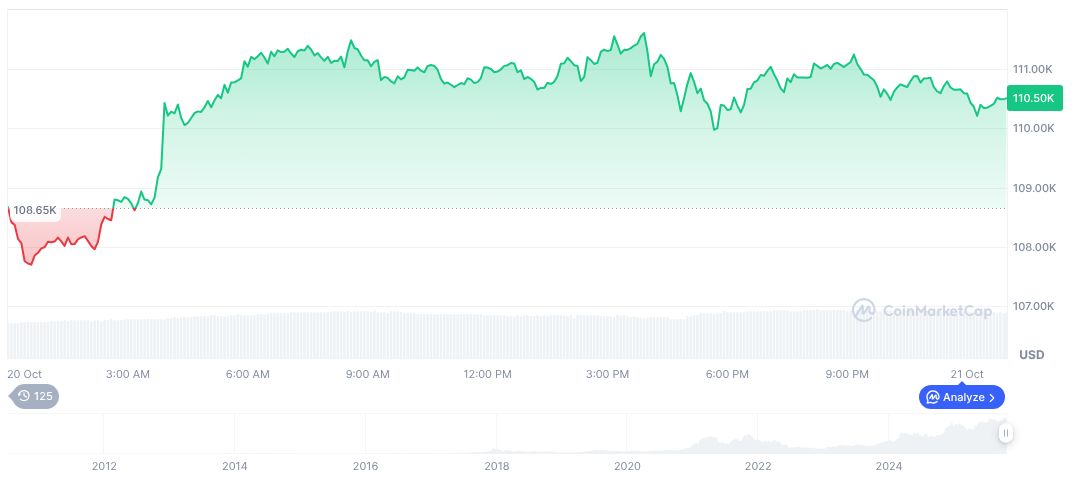- U.S. formalizes blockchain for defense; key institutional support involved.
- Enhanced role in financial defense and geostrategic competition.
- Market and industry reactions suggest broad implications and interest.
The Central Party School’s Learning Times asserts digital currency’s rising role as a geopolitical tool, with the United States institutionalizing blockchain for military purposes, according to the 2025 National Defense Authorization Act.
Digital currencies, despite regulatory challenges, offer strategic military advantages like evading sanctions and rapid fund mobilization, affecting global defense strategies and cryptocurrency market dynamics.
Blockchain in U.S. Military: Strategic Developments
The “Defense Blockchain Internal Testing Program” is pivotal in the 2025 U.S. National Defense Authorization Act, positioning blockchain as a strategic military instrument. The U.S. Department of Defense and key policymakers, like Secretary of Defense Lloyd Austin, have initiated assessments to realize its potential in defense applications.
Experts highlight the decentralized nature of blockchain as advantageous for wartime applications, providing rapid fund mobilization and sanction evasion capabilities. The program aims to institutionalize blockchain in military spheres, with implications for financial defense. It envisages “resource tokenization,” “decentralized crowdfunding,” and “on-chain sanctions,” expanding its utility beyond conventional financial systems. Several stakeholders, including the Constellation Network, are working with defense agencies, exemplifying blockchain’s integration in secure data exchange and battlefield operations.
“The US must integrate Bitcoin mining and hash rate as part of national security infrastructure. A US ‘Hash Force’ could help counter adversary digital warfare.” — Jason Lowery, DoD Bitcoin Policy Consultant
Industry figures and defense experts have acknowledged blockchain’s role, indicating a positive shift in strategic and financial circles. Jason Lowery, a DoD consultant, has emphasized Bitcoin’s “power projection” value, advocating for its integration into national security. These developments have sparked wider dialogues across political and tech segments on blockchain’s evolving utility.
Bitcoin Trends and Blockchain Defense Insights
Did you know? In the Fiscal Year 2025 National Defense Authorization Act, the U.S. officially mandated blockchain’s assessment for defense strategies, marking a shift from 2018’s initial explorations into today’s institutionalized role.
As of October 21, 2025, Bitcoin (BTC) is priced at $108,128.96 with a market cap of approximately $2.16 trillion, accounting for 58.9% of market dominance. In the last 24 hours, trading volumes reached around $62.08 billion. Over recent periods, Bitcoin’s price registered a 2.67% decline within 24 hours and an 8.68% drop over 90 days. The data recorded and updates provided by CoinMarketCap reflect ongoing fluctuations and market responses.
The Coincu research team suggests that current developments could lead to significant financial and regulatory transformations. Key trends indicate increasing acceptance of digital currencies as strategic tools, with blockchain technology underpinning future defense and financial frameworks.
| DISCLAIMER: The information on this website is provided as general market commentary and does not constitute investment advice. We encourage you to do your own research before investing. |
Source: https://coincu.com/news/us-integrates-blockchain-defense-strategy/
